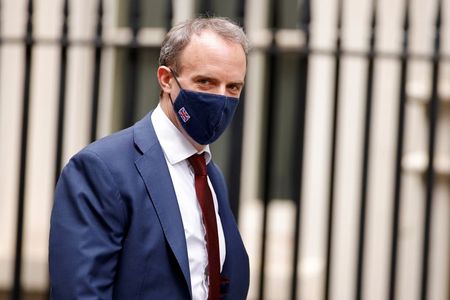UK imposes sanctions on individuals accused of serious corruption in Russia

The UK has sanctioned a number of individuals across Russia, South Africa and Latin America in the first use of a new anti-corruption law.
Some 22 individuals were hit with asset freezes and travel bans today in the first use of Britain’s new Magnitsky act.
Like a similar law in the US, it is named after Sergei Magnitsky, a lawyer who was arrested and later died in prison after accusing a handful of Russian officials of tax fraud.
Some 14 Russians accused by Magnitsky were today sanctioned due to their involvement in what the Government has described as a $230m fraud.
“Corruption has a corrosive effect as it slows development, drains the wealth of poorer nations and keeps their people trapped in poverty. It poisons the well of democracy,” foreign Secretary Dominic Raab said.
The UK has also targeted the South African Gupta family at the centre of a corruption scandal which helped to bring down former President Jacob Zuma.
Brothers Ajay, Atul and Rajesh Gupta are accused of using their relationship with Zuma to profit financially and influence appointments. The family and former PM have denied any wrongdoing.
Speaking to MPs, Raab said the UK can be a “honey pot” for corrupt individuals looking to “launder their dirty money”.
A Honduran official accused of facilitating bribes to support a drug trafficking organisation was also targeted. Additionally a Guatemalan linked to bribery and a treasurer of Nicaragua’s Sandinista party linked to misappropriation of public funds also face sanctions.